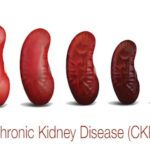Author : Dr. Chethana D, Consultant – Rheumatology, Aster CMI Hospital, Bangalore
India
healthysoch
New Delhi, October 12, 2022:
 The term “Arthritis” refers to pain and stiffness in joints. It is a very common ailment and a global health problem. It is very much treatable. Sooner you start treatment, better will be the outcome. If treatment is delayed, patients may suffer with chronic pain, difficulty in walking and climbing stairs and inability to perform everyday activities.
The term “Arthritis” refers to pain and stiffness in joints. It is a very common ailment and a global health problem. It is very much treatable. Sooner you start treatment, better will be the outcome. If treatment is delayed, patients may suffer with chronic pain, difficulty in walking and climbing stairs and inability to perform everyday activities.
The most common types of arthritis are –
- Osteoarthritis – It is caused due to damage or wearing of the cartilage, leading to joint swelling, pain, and stiffness. The condition mostly affects the elderly; however, younger adults can be affected too, especially with history of joint injury.
- Gouty Arthritis – The condition is identified as sudden unbearable painful attacks in joints. It is seen in young men and older adults. Premenopausal women are usually spared.
- Rheumatoid Arthritis – This is an auto-immune disorder where the immune system attacks the joints and the body’s tissues. It can cause severe damage to joints, leading to deformities, if not treated promptly.
While most types of arthritis have no cure, they can be very well managed with a combination of medications (including disease modifying drugs, analgesics, anti-inflammatories), eating a well-balanced diet, adapting a healthy lifestyle, quitting smoking, limiting alcohol intake and engaging in regular physical exercise. These help in managing inflammation and boosting immunity. Several studies have highlighted the benefits of a healthy diet in managing inflammation. The foods that can help in managing arthritis well are –
- Fish – Fatty fish can help in fighting inflammation as they are high in omega-3 fatty acids. Fish is an important part of an arthritis diet as consumption of salmon, tuna and sardines can help in keeping stiffness and swelling at bay.
- Beans – Red beans, kidney beans, pinto beans etc. are great sources of antioxidants and help control the levels of CRP (C-reactive protein) that helps in managing inflammation and swelling in the joints. Thus, regular consumption of beans is extremely helpful.
- Nuts And Seeds – While nuts and seeds are high-calorie foods, consuming them in a regulated quantity can boost energy and can fight inflammation by virtue of monounsaturated fats.
- Fresh Vegetables and Berries – Leafy and fibrous vegetables like spinach and broccoli help in relieving swelling and lowering inflammation. Berries such as blackberries, strawberries, and raspberries can also inhibit the inflammatory process. These are full of minerals and antioxidants and boost overall health. Berries and fresh vegetables should be a regular part of the daily diet in arthritis patients.
- Garlic and Ginger – These have natural anti-inflammatory properties and have been used by nutritionists in natural and holistic treatment for several years. Including ginger and garlic regularly in your diet can reduce arthritis pain and swelling.
What are the foods that arthritis patients should avoid?
Certain foods can aggravate inflammation and arthritis symptoms and are best avoided –
- Fried and Sugary Foods – A diet high in sugars and processed foods increase the advanced glycation end that triggers cytokine production which leads to an increase in arthritis swelling and pain. Cutting down on such foods and substituting them with vegetables can result in better outcomes.
- Dairy products – Although some fatty acids are associated with health benefits, diet rich in saturated fats and full fat dairy products can aggravate inflammation. Arthritis patients should avoid full fat dairy products as they can trigger inflammation and joint pain.
- Tobacco – Smokers are at a high risk of developing severe disabling rheumatoid arthritis as tobacco consumption is associated with anti CCP antibody.
If you are suffering from arthritis, then managing your diet and regular exercise program can make a huge difference in reducing arthritis pain. Consumption of fluids and fiber rich food can keep constipation at bay. Including vitamin D in your diet through fortified milk, yoghurt, orange juice and cereal along with legumes, pomegranates, green tea, brown rice, and nuts can also help in rebuilding cartilage. For optimal joint function, you might also consider adding a few supplements to your diet that can help reduce inflammation and avoid cartilage breakdown, like the omega 3 fatty acids.
Taking control of your diet can not only help as an adjunct to benefits of arthritis treatment, but can also help you avoid the condition and lead a healthy life.
healthysoch







